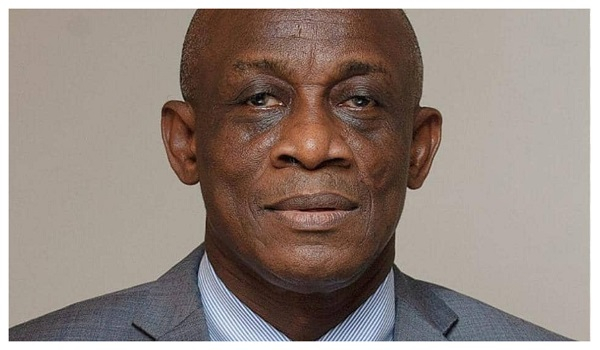Reuters: Falling Oil Prices Delay FG's $5bn Oil-backed Loan from Saudi Aramco - THISDAYLIVE
•Parties may renegotiate record deal
Emmanuel Addehin Abuja and Peter Uzohoin Lagos
Recent falling oil prices are delaying a deal by Nigeria and Saudi Arabian oil company, Aramco, as both parties struggle to reach an agreement on a record $5 billion oil-backed loan.
Banks that were expected to back the deal, four sources told Reuters, are raising concerns over the current situation of the oil market, the report stated.
A THISDAY report in March this year had shed light on the extensive use of forward oil sales agreements by the Nigerian National Petroleum Company Limited (NNPC), revealing that the company had entered into crude prepayment deals worth approximately $21.6 billion since 2019.
These agreements, often referred to as “forward sales” or “pre-export financing” arrangements, involve mortgaging Nigeria’s future crude oil production in exchange for upfront cash.
While such deals offer short-term liquidity, the report raised significant concerns about their long-term implications for the country’s economy, transparency, and energy security.
Among the major deals highlighted were Project Gazelle and Project Gazelle II, together accounting for nearly $11 billion. It noted that financial institutions such as Afreximbank may have reached their lending limits to Nigeria and has declined to participate in newer deals, including Gazelle II, which THISDAY was told could be handled by Middle Eastern players such as Saudi Aramco or UAE’s ADNOC.
But Reuters said the facility would be Nigeria’s largest oil-backed loan to date and Saudi Arabia’s first participation of this scale in the country, although the decline in oil price could shrink the size of the deal, quoting the sources.
Nigeria’s President Bola Tinubu, two of the sources said, first broached the loan in November when he met with Saudi Crown Prince Mohammed bin Salman in Riyadh at the Saudi-African Summit.
The slow progress in discussions reflects the strain of the recent oil price drop, caused largely by a shift in the policy by the Organisation of Petroleum Exporting Countries (OPEC) and its allies, OPEC+ to regain market share rather than curtail supply.
Brent has fallen about 20 per cent to around $65 per barrel from above $82 in January. A lower oil price means Nigeria could need more barrels to back the loan, but years of under-investment are complicating its ability to meet production goals.
In May, it was reported Tinubu was seeking approval for $21.5 billion in foreign borrowing to bolster the budget. The $5 billion oil-backed facility under discussion with Aramco would be part of that, sources said.
The banks involved in the talks that are expected to co-fund part of the loan with creditor Aramco have expressed concerns about oil delivery, which has slowed discussions, sources said.
Gulf banks and at least one African lender are involved, they added. Reuters could not establish the banks’ identities.
“It’s hard to find anyone to underwrite it,” one source said, citing concerns over the availability of the cargoes. Saudi Aramco declined to comment. Nigeria’s state-owned oil company NNPC did not comment, and neither did the finance or petroleum ministries, Reuters added.
Nigeria has years of experience taking out and repaying oil-backed loans, which the government uses for budget support, shoring up foreign reserves or to revamp state-owned refineries.
At $5 billion, the Aramco loan would be backed by at least 100,000 barrels per day of oil, the sources said. However, it would almost double the roughly $7 billion of oil-backed loans taken in the last five years.
Nigeria is using at least 300,000 bpd to repay NNPC’s other oil-backed loans, though one facility is expected to be paid off this month. The amount of oil going towards repaying existing oil-backed loans is fixed, but when the crude price falls, it takes longer to repay them.
Additionally, lower prices mean the NNPC has to funnel more crude oil to joint-venture partners, from international majors like Shell to local producers like Oando or Seplat, for its portion of operation costs.
“You have to either find more oil, or find a way to renegotiate those deals,” another source said.
Nigerian trading firm Oando is expected to manage the offtake of the physical cargoes, the sources said. Reuters said Oando did not comment.
NNPC is trying to boost output, while Tinubu issued an executive order aimed at cutting production costs, which would free more money from each barrel.
Africa’s largest oil exporter assumed a price of $75 per barrel in its budget, with production of 2 million bpd. But in April, it pumped just under 1.5 million bpd, according to the May OPEC market report.
On the home front, the consequences of these forward sales are now being felt. NNPC’s commitment to deliver crude under these agreements has severely constrained its ability to meet its Domestic Crude Supply Obligation (DCSO).
This directly affects local refiners, including the Dangote Refinery, which have had to import crude oil despite Nigeria being a major oil producer. Such a paradox undermines the goal of achieving energy self-sufficiency and maximising the benefits of local refining.
But while NNPC’s forward oil deals may be helping to manage immediate fiscal pressures, they appear to be doing so at the expense of future oil revenues, domestic energy needs, and financial transparency.
Some of the deals, THISDAY had reported, stretch as far as 2034, effectively committing significant volumes of Nigeria’s crude production to external obligations for nearly a decade to come.










